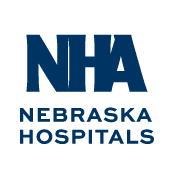Acute Care Hospital Conditions of Participation, Five-Part Series (W4002)
Dates: Thursdays, January 18, January 25, February 1, February 8, February 15
Time: 9:00 a.m. – 11:00 a.m. CT
Cost: $595 to NHA members (Per hospital, no charge for additional lines. Those individuals interested in viewing the recording must register separately at the Zoom link prior to the start of the webinar. Zoom will send each individual registered an email containing an access code to view the recording.)
Course Curriculum:
This five-part webinar series will cover the Centers for Medicare & Medicaid Services (CMS) Hospital Conditions of Participation (CoPs) manual, Appendix A. This series will discuss the most challenging standards within the CMS CoPs manual and will show how hospitals can do a gap analysis to assist in compliance.
Every hospital that accepts payment for Medicare and Medicaid patients must comply with the CMS CoPs. The manual also has interpretive guidelines, which serve as the basis for determining hospital compliance, that must be followed for all patients treated in the hospital or hospital-owned departments. Although some changes from 2020 have pending interpretive guidelines and survey procedures p, hospitals are still expected to comply with the regulations. This series will include a review of the 2020 changes and the 2023 updates.
Facilities with deemed status accredited by the Joint Commission (TJC), HFAP, CIHQ, and DNV Healthcare must also follow the CMS CoPs regulations.
Learning Objectives:
Part One:
• Discuss how to locate a copy of the current CMS CoP manual.
• Describe the time limitations for a history and physical for an inpatient undergoing an elective surgery.
• Discuss that the physician must sign off on verbal orders, along with a date and time.
• Explain the four exceptions to information blocking.
Part Two:
• Recall that CMS has restraint standards that hospitals must follow.
• Describe that a hospital must have a grievance policy and procedure in place.
• Recall that interpreters should be provided for patients with limited English proficiency and hearing impairment.
• Describe how non-physician practitioners such as physician assistants and nurse practitioners can order restraints.
Part Three:
• Describe which medications must be given timely and within one of three blocks of time.
• Recall that medical staff should approve all order/protocols as well as sign off on orders entered into the medical record.
• Recall that a nursing care plan must be in writing, started soon after admission, and maintained in the medical record.
• Discuss patient safety issues with compounding pharmacies.
• Recall that the hospital must have a safe opioid policy approved by the medical executive committee and staff must be educated on the policy.
Part Four:
• Recall the requirement for, and elements of, a QAPI program.
• Describe the need for radiology policies, including radiation safety and qualified staff.
• Discuss the new option of credentialing the dietician to order diets (if allowed by the state).
• Describe the need for the facility maintenance program to include water management.
Part Five:
• Discuss that CMS requires many policies in infection prevention and control.
• Recall that patients referred to a post-acute care provider (PAC) must be given a list in writing of those available and the list must be documented in the medical record.
• Describe that all staff must be trained in the hospital’s policy on organ donation.
• Recall that CMS requires specific items to be documented in the medical record regarding the post-anesthesia assessment.
Intended Audience:
Chief Medical Officer, Chief Nursing Officer, Compliance Officer, Emergency Department Personnel, Joint Commission Coordinator, Medical Records, Quality Improvement personnel, Risk Manager, Legal Counsel.
Faculty:
Laura A. Dixon, BS, JD, RN, CPHRM
Laura A. Dixon served as the director of risk management and patient safety for the Colorado Region of Kaiser Permanente. Prior to joining Kaiser, she served as the director, facility patient safety and risk management and operations for COPIC from 2014 to 2020. In her role, she provided patient safety and risk management consultation and training to facilities, practitioners, and staff in multiple states.
Dixon has more than 20 years of clinical experience in acute care facilities, including critical care, coronary care, peri-operative services, and pain management. Prior to joining COPIC, she served as the director, Western region, patient safety and risk management for The Doctors Company in Napa, California. In this capacity, she provided patient safety and risk management consultation to the physicians and staff for the western United States.
As a registered nurse and attorney, Dixon holds a Bachelor of Science degree from Regis University, RECEP of Denver, a Doctor of Jurisprudence degree from Drake University College of Law, Des Moines, Iowa, and a Registered Nurse Diploma from Saint Luke’s School Professional Nursing, Cedar Rapids, Iowa. She is licensed to practice law in Colorado and California.
This speaker has no real or perceived conflicts of interest that relate to this presentation.

